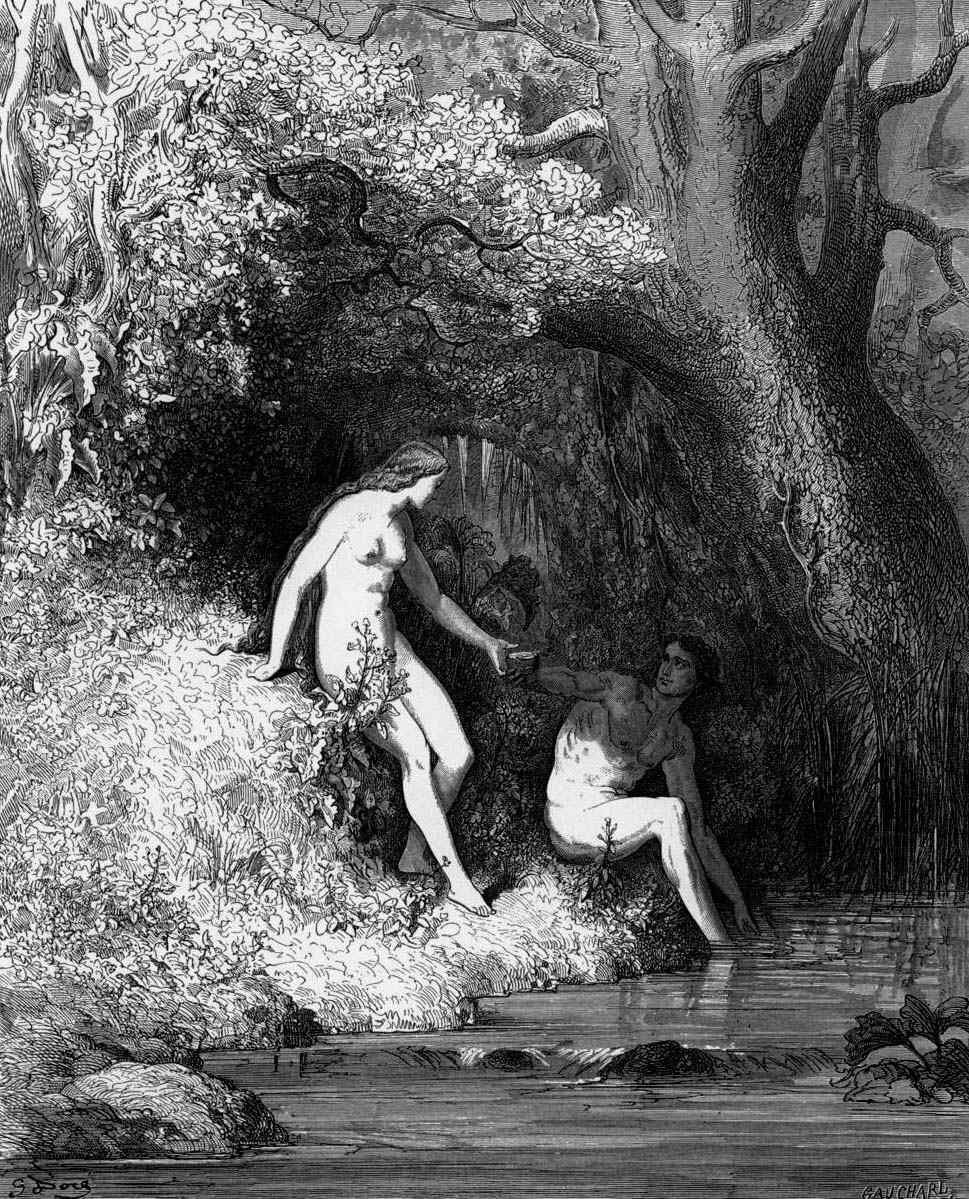Spiritual Sunday
My wife has been researching her Moravian past prior to a heritage trip to the Czech Republic and other important Moravian way stations in the trek to Bethlehem, Pennsylvania, where Julia’s ancestors landed. Some of these ancestors were missionaries who made their way to Grace Hill, Iowa, where Julia grew up.
Julia reported a fascinating tidbit recounted in Aaron Spencer Fogleman’s Jesus is Female: Moravians and Radical Religion in Early America. One of them got me thinking that, when it comes to sex, John Milton sounds more Moravian than Puritan in Paradise Lost.
A little background is useful. The Moravians were followers of Jan Huss, who was burned at the stake for translating the Bible into Czech. The Moravians went underground but eventually found sanctuary on the estate of one Count Zinzendorf. Zinzendorf sent Moravians all over the world to share a vision that was fairly progressive, especially in its views of women and sexuality—views that threatened denominations that were more patriarchal and more repressed. As Zinzendorf saw it, sexual intercourse was a sacramental act:
[The Moravians] resacralized marriage and declared that sex between husband and wife was holy, a service to God, and a part of their liturgy. This was in part a consequence of their view of marriage between men and women as an image of the mystical marriage between the church and Christ the bridegroom that was common in Christian belief, but the Moravians went well beyond this. Zinzendorf taught that the husband acted as a proxy or procurator for Christ, and the wife should regard him as acting in the name of the Creator (Christ). Husband and wife became partners in the struggle to do the Lord’s work on earth…
And:
[S]ex among married couples also became an important spiritual event in the church, as man and wife received a blessing from the Savior during intercourse, and Moravian hymns portrayed the glory of sexual organs. By emphasizing the gendered, sexual character of the deity the Moravians took away the shame and sin of sex…As Zinzendorf explained in the forward to their hymnal, if the Creator had a male organ (mannliches Glied), and if the female organ (weibliches Glied) was honored for all eternity in the person of the holy mother, then why should they be ashamed of their sexual parts. Thus the genitalia of men and women were venerated, not hidden, and the act of procreation became not a necessary evil or impure act, but rather a majestic one that should not be kept secret but sung publicly in hymns like the following:
O bring us, our marriage friend
thy blood speckled member,
which is needed for the union
with our innocence once again. (Hymn 2121)
When I can eat him,
so it is best for me,
and when my dear husband
lets his oil sizzle in me;
since this grace is a sacrament
that one cannot always have
my body is turned toward (him). (Hymn 2085)
Julia notes that these hymns were not still in circulation when she was growing up.
Some readers criticized Milton’s depiction of Adam and Eve having sex in the Garden of Eden. As he figured it, however, sex was needed to produce the children that would help with pruning and other tasks. After showing them making love, Milton immediately attacks those who see sex as dirty. Like the Moravians, for Milton sex is a gift from God.
It all happens in a wonderful passage. First, in Book IV Adam and Eve make their way to their “blissful bower” that is overgrown with beautiful flowers:
Thus talking, hand in hand along they passed
On to their blissful bower. It was a place
Chosen by the sovran Planter, when he framed
All things to Man’s delightful use. The roof
Of thickest covert was inwoven shade,
Laurel and myrtle, and what higher grew
Of firm and fragrant leaf; on either side
Acanthus, and each odorous bushy shrub,
Fenced up the verdant wall; each beauteous flower,
Iris all hues, roses, and gessamin,
Reared high their flourished heads between, and wrought
Mosaic; under foot the violet,
Crocus, and hyacinth, with rich inlay
Broidered the ground, more coloured than with stone
Of costliest emblem.
After spontaneously thanking God for His goodness, they then proceed to business:
[I]nto their inmost bower
Handed they went, and, eased the putting-off
These troublesome disguises which we wear,
Straight side by side were laid; nor turned, I ween,
Adam from his fair spouse, nor Eve the rites
Mysterious of connubial love refused…
Milton can’t quite say that Adam and Eve have intercourse–he’s saying that they don’t turn away from it–and his subsequent attack on hypocrites indicates that he’s not pleased at having been forced into this defensive position. When it comes to married couples, he says that only Satan sees sexual abstinence as positive:
Whatever hypocrites austerely talk
Of purity, and place, and innocence,
Defaming as impure what God declares
Pure, and commands to some, leaves free to all.
Our Maker bids increase; who bids abstain
But our destroyer, foe to God and Man?
Hail, wedded Love, mysterious law, true source
Of human offspring, sole propriety
In Paradise of all things common else!
Like the Moravians, Milton does distinguish between innocent sex and lustful sex. The first is “founded in reason, loyal, just, and pure” and is a “perpetual fountain of domestic sweets.” The latter is bound up in “the bought smile of harlots, loveless, joyless, unendeared” and in “court amours, mixed dance, or wanton mask, or midnight ball.” We see innocent sex give way to lust when Adam and Eve have sex after the fall, when it becomes associated with transgression.
Stereotyping Milton as a prudish Puritan doesn’t do him justice. He used his epic to explore foundational issues, including male-female sexuality, and arrived at unexpected conclusions. Paradise Lost is often more radical than it is given credit for.
